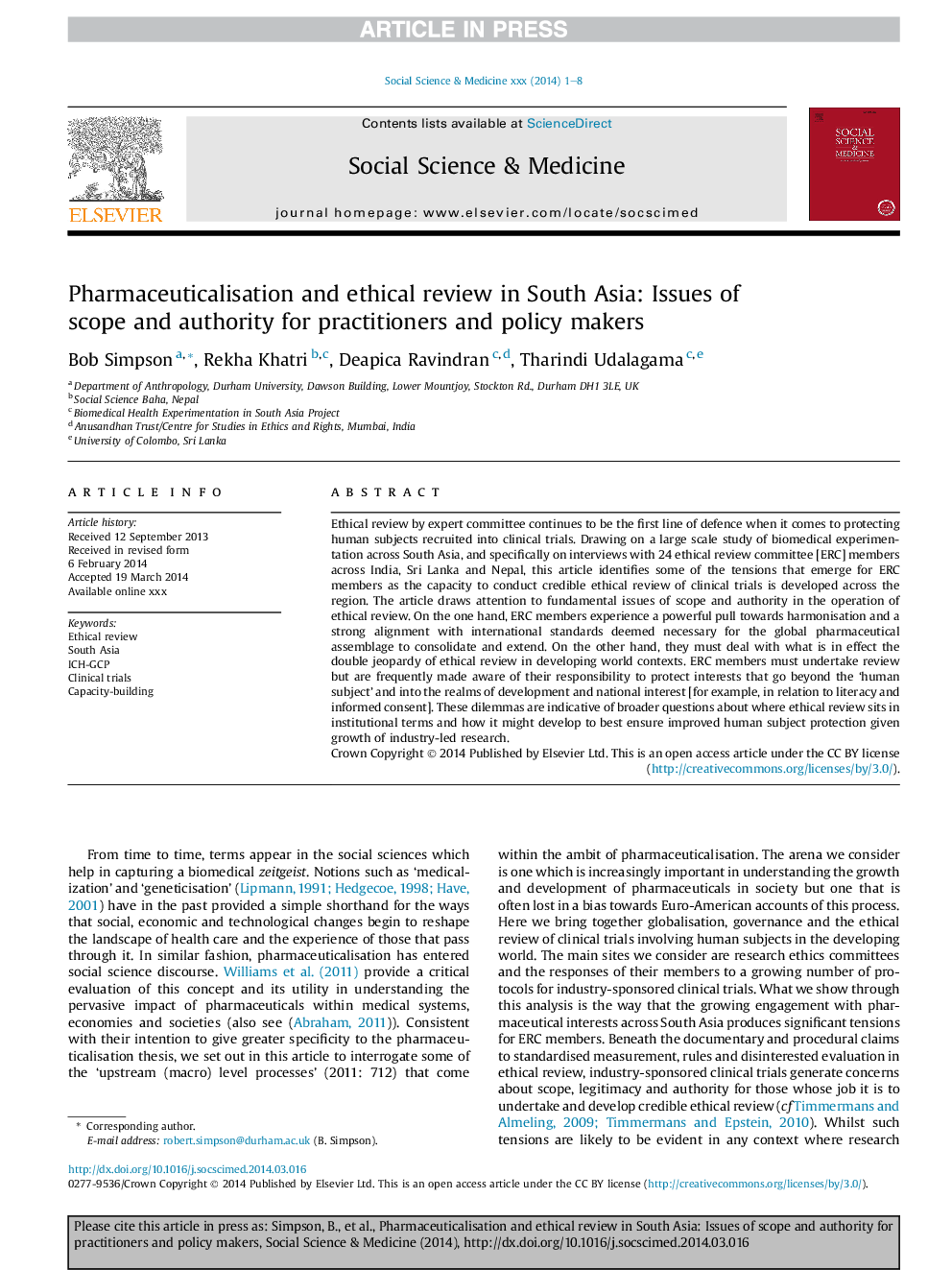| Article ID | Journal | Published Year | Pages | File Type |
|---|---|---|---|---|
| 7332808 | Social Science & Medicine | 2015 | 8 Pages |
Abstract
Ethical review by expert committee continues to be the first line of defence when it comes to protecting human subjects recruited into clinical trials. Drawing on a large scale study of biomedical experimentation across South Asia, and specifically on interviews with 24 ethical review committee [ERC] members across India, Sri Lanka and Nepal, this article identifies some of the tensions that emerge for ERC members as the capacity to conduct credible ethical review of clinical trials is developed across the region. The article draws attention to fundamental issues of scope and authority in the operation of ethical review. On the one hand, ERC members experience a powerful pull towards harmonisation and a strong alignment with international standards deemed necessary for the global pharmaceutical assemblage to consolidate and extend. On the other hand, they must deal with what is in effect the double jeopardy of ethical review in developing world contexts. ERC members must undertake review but are frequently made aware of their responsibility to protect interests that go beyond the 'human subject' and into the realms of development and national interest [for example, in relation to literacy and informed consent]. These dilemmas are indicative of broader questions about where ethical review sits in institutional terms and how it might develop to best ensure improved human subject protection given growth of industry-led research.
Related Topics
Health Sciences
Medicine and Dentistry
Public Health and Health Policy
Authors
Bob Simpson, Rekha Khatri, Deapica Ravindran, Tharindi Udalagama,
